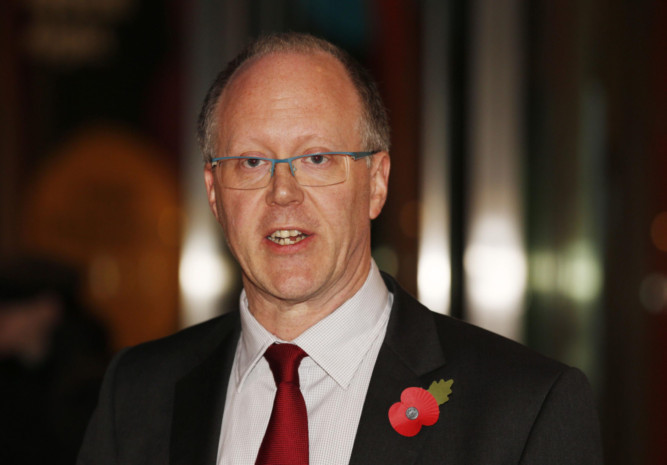The pay-off to former BBC director general George Entwistle, who quit in the wake of the Jimmy Savile scandal, was a “cavalier” use of money, according to MPs.
The £450,000 paid to Mr Entwistle after just 54 days in the job was out of line with public expectation, the Commons public accounts committee said.
The BBC Trust said legal advice has been sought about reclaiming money, but added this was unlikely to happen.
The BBC’s head of news said criticism was being taken “very seriously”.
On Wednesday, the Pollard Review found there was “chaos and confusion” at the corporation over a Newsnight report on Savile which was dropped in December 2011 but concluded senior managers had not instigated a cover-up.
The review dismissed claims the six-week Newsnight investigation was shelved to protect tribute programmes to the TV presenter and DJ, who died in October 2011, aged 84.
Mr Entwistle left last month with a pay-off worth £450,000, double the amount specified in his contract, along with a year’s health insurance and money for PR advice.
In its report, the Commons committee said that was out of line with severance packages in the public sector.
Chairwoman Margaret Hodge said: “Public servants should not be rewarded for failure. But that was exactly what happened when the BBC Trust paid off the former director general, George Entwistle.
“This cavalier use of public money is out of line with public expectations and what is considered acceptable elsewhere in the public sector.”
The committee added it was “extremely concerned” the BBC Trust rejected an offer for the National Audit Office (NAO) to examine payments made to Mr Entwistle.
“This inhibited Parliament’s ability to hold the trust to account for its use of public money,” the report said.
MPs also criticised the benefits and severance packages for other senior staff at the corporation as “excessively generous,” including one of nearly £1m to former deputy director general Mark Byford, who left last year.
Mrs Hodge said: “We have asked the comptroller and auditor general to include in his 2013 programme of work on the BBC an examination of severance payments and benefits for senior managers.”
BBC Trust chairman Lord Patten said the criticisms made by MPs were “unfair”.
“I think the treatment we have had from them has been a bit shabby,” he said, arguing the committee had been sent a detailed account of the legal advice used to reach a decision regarding the former director general.
“I don’t think they have been fair because they don’t look at our legal arguments at all.”
On the pay-off, he said: “We’ve taken legal advice about whether we could actually take any money back.
“In order for us to do so we’d have to be able to argue that, on the basis of what Pollard says, we would have been justified in making a summary dismissal of the former director general and I doubt whether we would get the legal go-ahead for that.
“But we do have to look at that and we have been looking at it.”
A BBC Trust spokeswoman acknowledged £450,000 was a “very substantial sum”, but insisted the terms reached were “the best available in the circumstances”.
She said it was “simply wrong” to suggest there had been an option to halve that amount, adding a constructive dismissal would have been costly, messy and drawn out.
An internal email issued by the BBC’s director of news Helen Boaden, who returned to her post on Thursday after stepping aside during the Savile crisis, described the recent criticisms of the corporation as “bruising”.
“All of us, and me especially, need to take that criticism very seriously,” she said.
